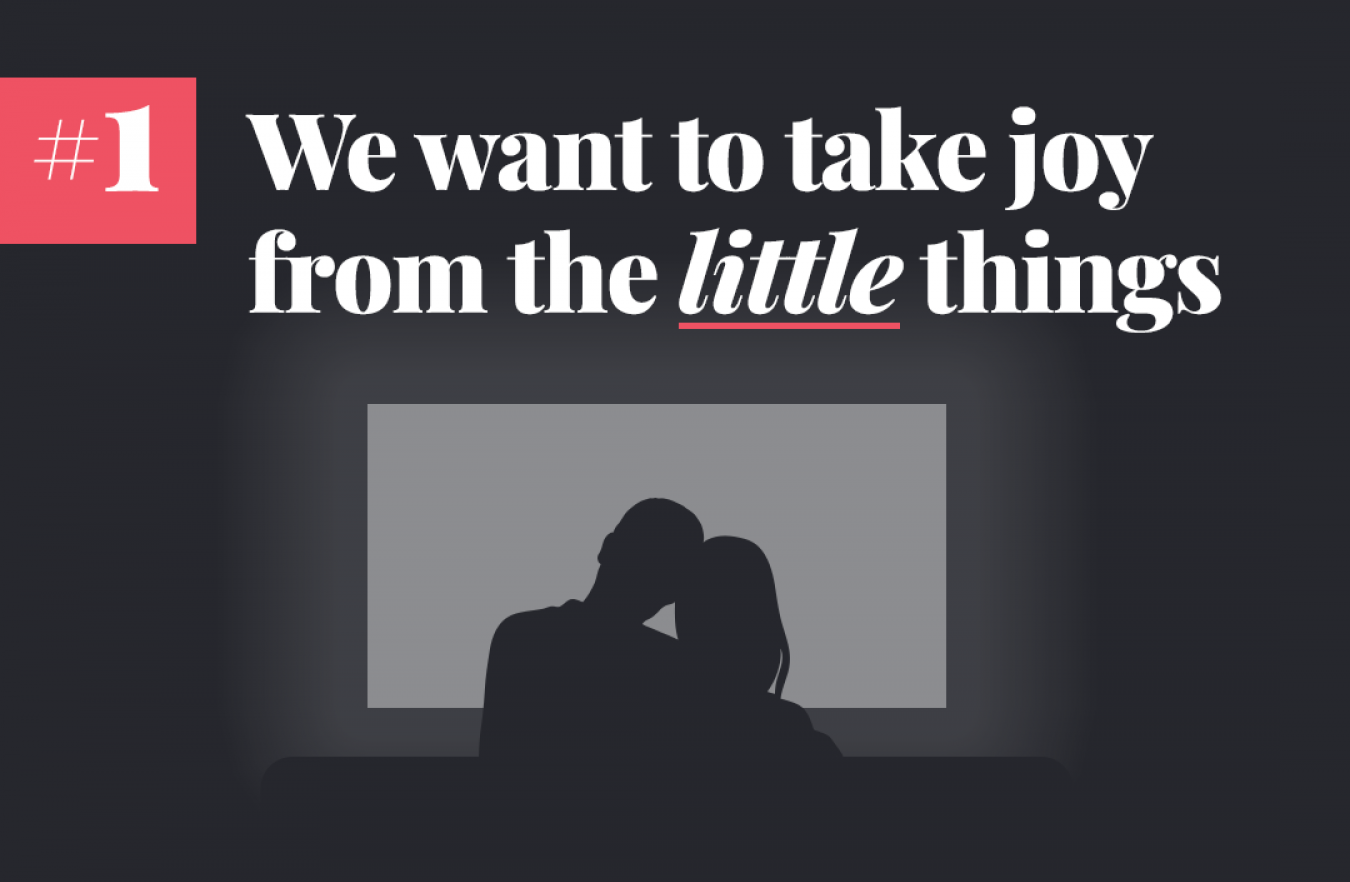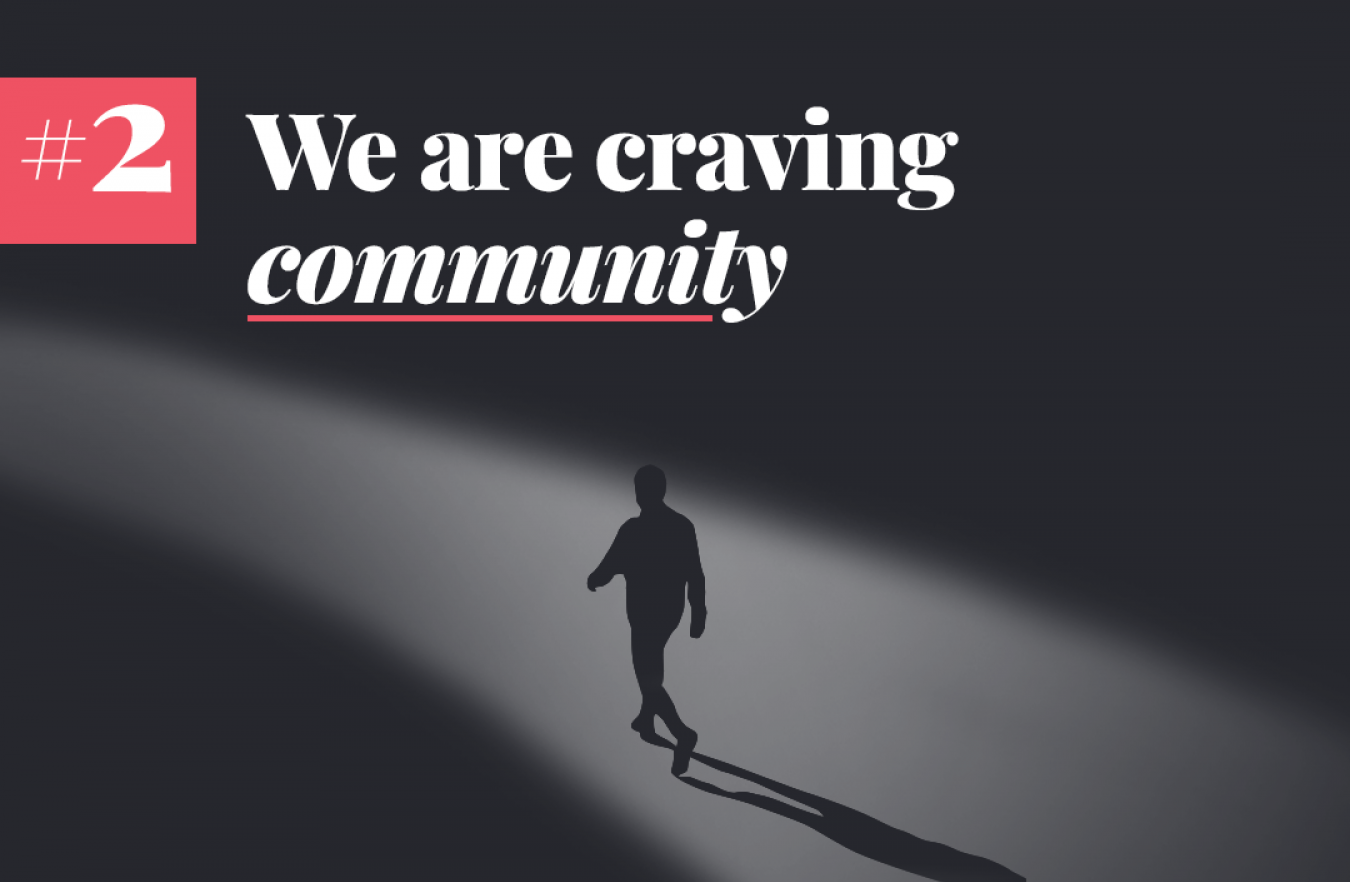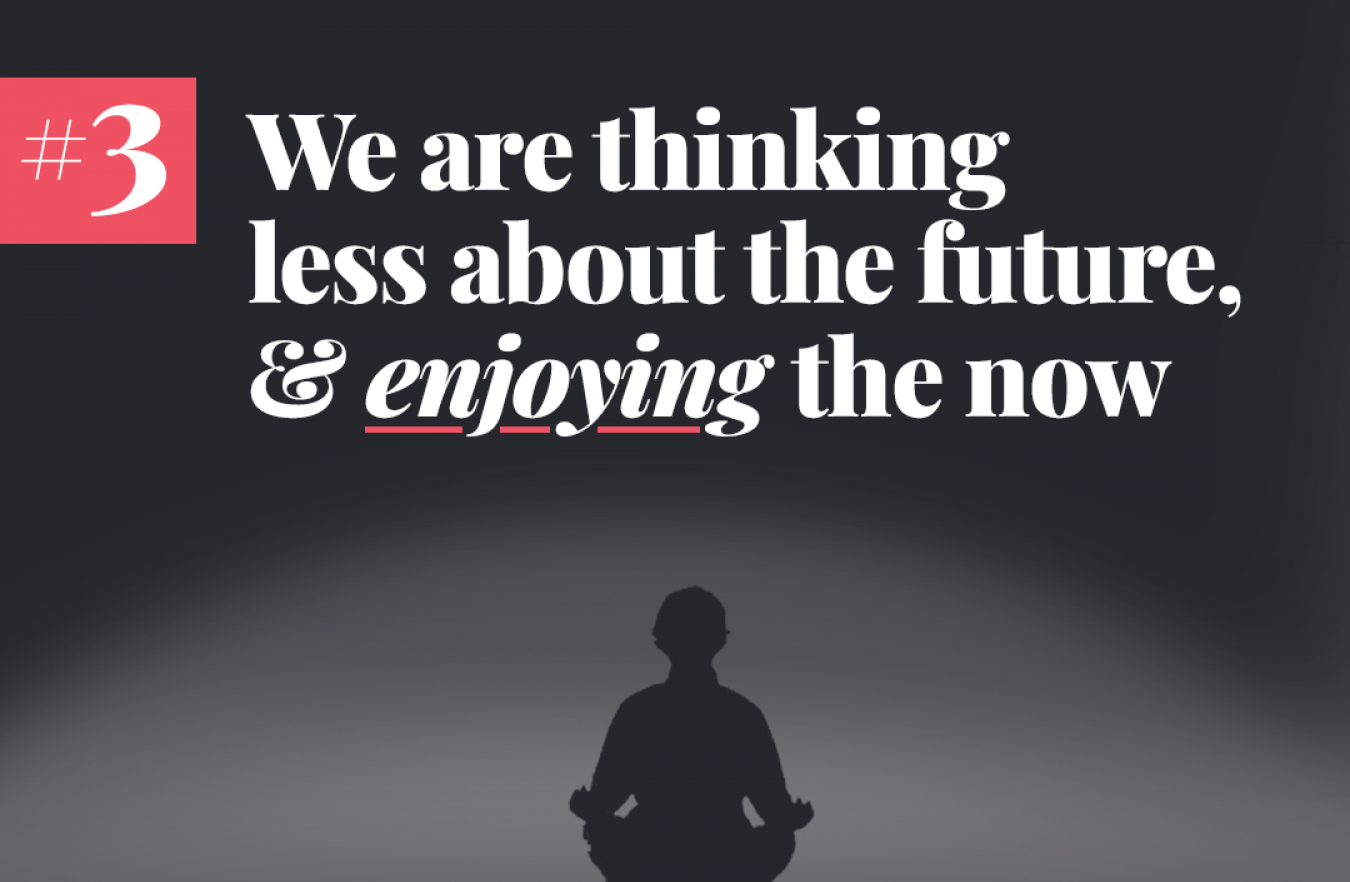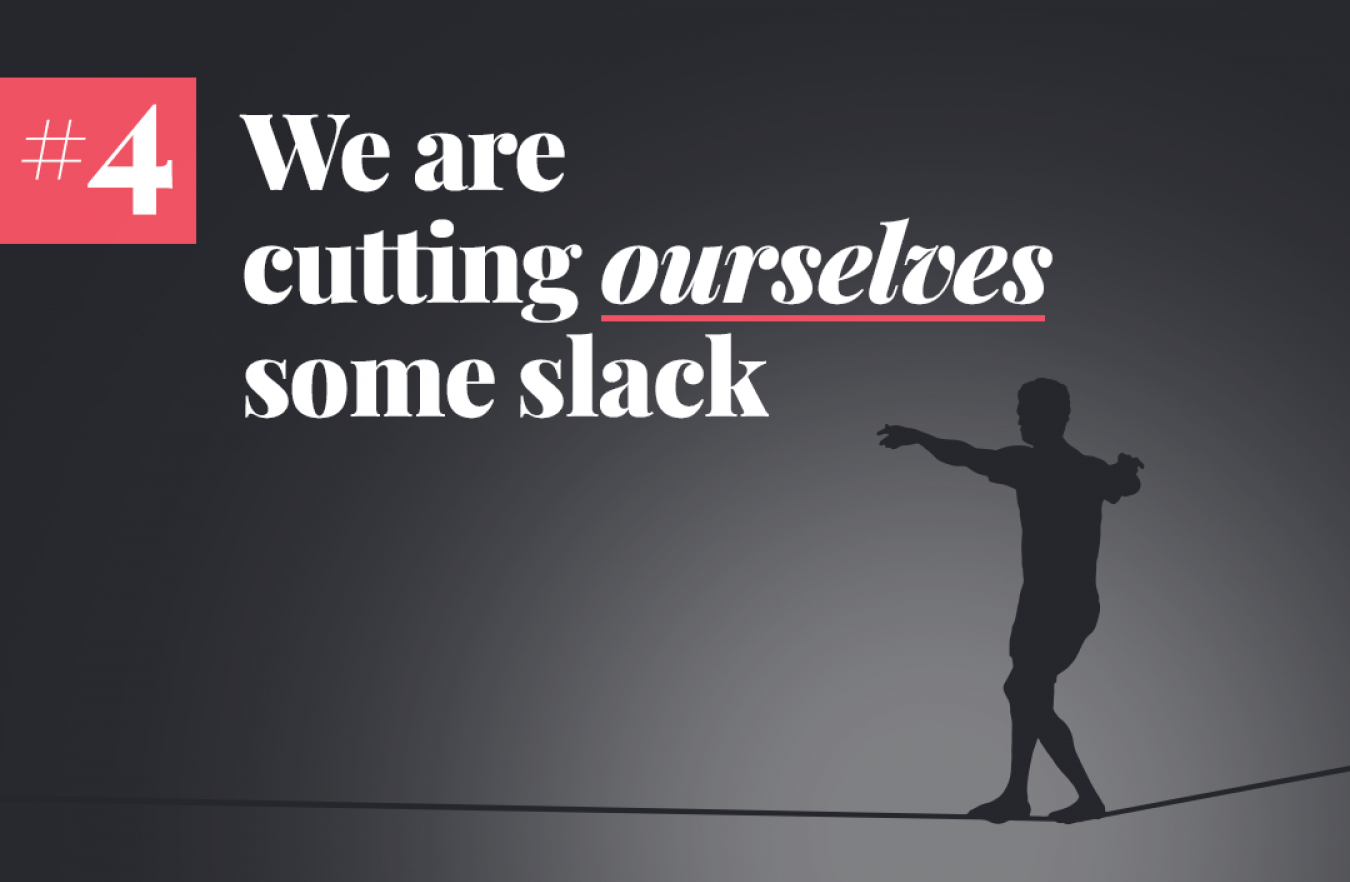We Brits are a strange old bunch in a strange old time. You don’t need to be an analyst to see we’re trying to fumble our way through one of the most turbulent periods in recent history: from Brexit, into Covid-19, into a European war and the resulting cost of living crisis.
And whilst we’re a proudly resilient bunch, we are moving from a ‘batten-down-the-hatches’ mindset, waiting for the sunshine on the horizon, to an acceptance of a state of ‘permacrisis’.
As Brits’ are adapting behaviours and attitudes towards living through a permanent state of disruption and turbulence, we’ve identified 4 important trends.

We want to take joy from the little things
There’s undeniable pressure on people to be perfect today, perhaps more than ever before: we must work hard, but not too hard. Be successful, but not proud. Confident, whilst humble. Healthy, but not health obsessed. We must prioritise our own wellbeing, but also everyone else’s.
This barrage is leading to an acceptance that people can only do so much – appreciating balance and moderation, and forgiving themselves small indulgences. As an example, many activities once seen as unhealthy and even lazy, are being viewed as worthwhile and beneficial to overall wellness – this includes watching TV (which is considered a form of self-care by 2/3 people globally) and gaming (by 1/3). (Foresight Factory, 2022)
Brands can get stuck between a rock and a hard place as they try to find the right balance between reflecting and leading the cultural narrative, so understanding this shift in outlook could help marketers avoid falling flat, or missing the mark in their comms.

We are craving community
People are growing ever lonelier. That’s no surprise as it’s been happening for the past couple decades (coincidentally corresponding with the influence of digital connectivity).
But right now the trend is more pronounced, the convenience and cost savings of working from home are outweighing a trip to the office every day, even for those who do enjoy the social office environment. On top of this, tighter pockets are cutting social activities and gym memberships – ever reducing physical interaction with other humans. (Accenture, 2023)
Brands should consider their role in creating and encouraging community through their comms, encouraging genuine, interpersonal interaction both online and off. Yes, glorify and encourage human connections through your comms, but also consider how you can build a real world community around your brand. See Nike’s incredible ‘She runs the night’ for an extreme example.

We are thinking less about the future, and focussing on enjoying the now
The future is so uncertain that people are avoiding looking as far ahead when planning, instead focusing more on making the most of the here and now.
More than half of all adults say they’re trying to have as much fun as they can now and let the future take care of itself (Foresight Factory, 2022).
An obvious learning for advertisers here is to be positive and avoid the temptation to reflect how hard things are right now in some sickly attempt to strike a chord with an audience – we saw this through Covid-19 in an array of stock footage montages overlaid with tacky piano tracks, which we can now see from most effectiveness data, didn’t work.
After all, in times of crisis, reassuring brand messaging is drastically more effective than that which simply reflects the situation (Attest, 2023)

We are cutting ourselves some slack
Whether the current cost-of-living crisis is a recession or not seems a little arbitrary, the fact is people have less disposable cash right now. And never before has a cost-of-living crisis followed a period of such severe restriction, meaning there’s a real tension between the desire to enjoy life and the ability to do so.
The feeling amongst many is that their opportunity to enjoy themselves is being unfairly taken away, and if they don’t do it now, when will they?
So despite the practical reduction in day-to-day spending – cancelling gym memberships and streaming services, going out less, trading down to own label and value brands or cutting out the morning coffee – certain indulgences are still seemingly unaffected, most notably travel (up 19% since mid-2021) and beauty which remains a priority where other categories have dropped (reminiscent of the lipstick surge in 2001’s recession and luxury lingerie in 2008) (GWI, 2023).
For many brands this is a silver lining, and they can make the most of it by removing feelings of guilt, to give people permission to indulge and enjoy through their comms.
However, for the brands which do find themselves on the chopping block there’s no one size fits all solution, as each situation is different. But the best place to start is always with the audience; by being tenacious in understanding what’s important to them right now, how that has changed and why are they dropping your brand can help feed your plan to remain relevant and compelling.
With no immediate end to this permacrisis in sight, brands need to adapt their approach towards a longer term period of disruption, in the way that consumers already have, which is less about battening-down-the-hatches, and more about making the most of now.
For a chat about how we can help your brand navigate the challenges, and maximise the opportunities these trends present, just get in touch at hello@principlesagency.co.uk